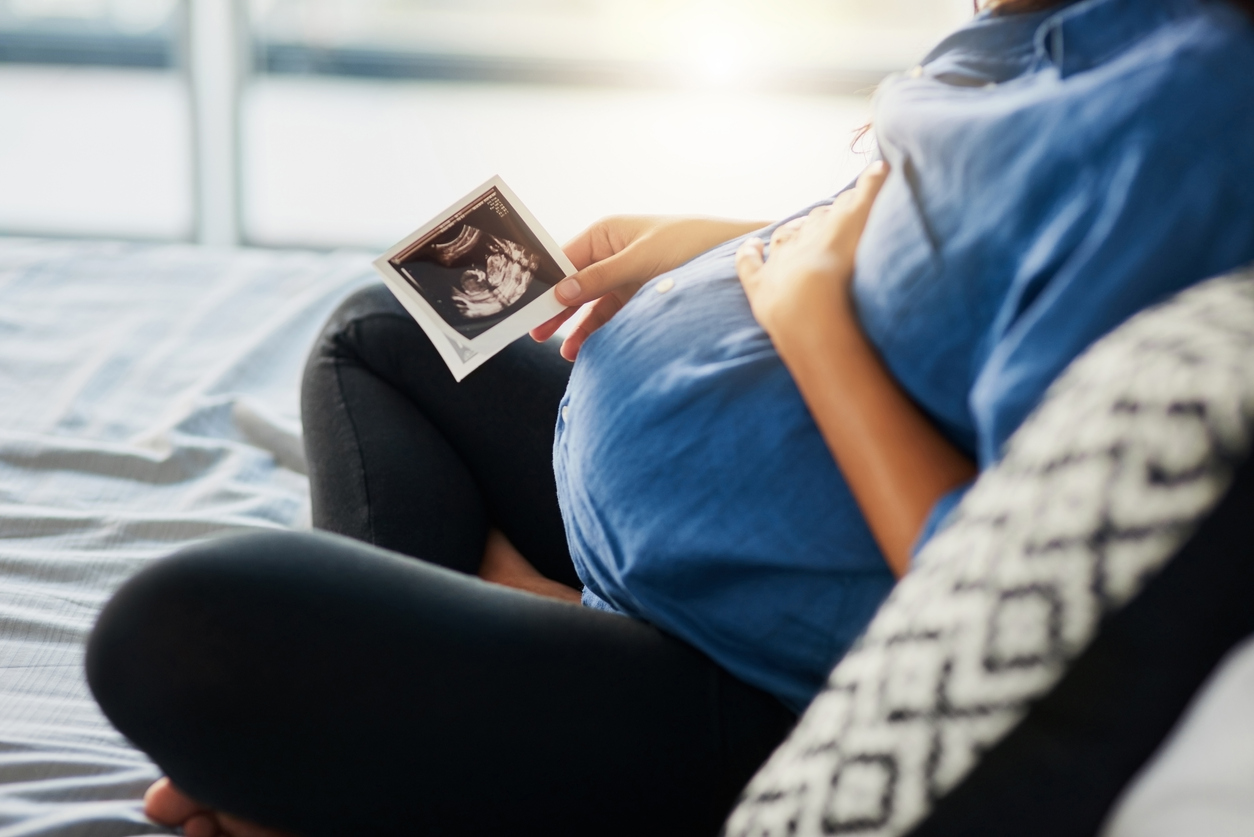Pregnant people nearly twice as likely to develop breakthrough COVID, study suggests


A free daily email with the biggest news stories of the day – and the best features from TheWeek.com
You are now subscribed
Your newsletter sign-up was successful
Results from a new study suggest pregnant people who are vaccinated against COVID-19 are almost twice as likely to develop breakthrough COVID than those who are not pregnant, The Washington Post reports.
In fact, fully-vaccinated pregnant people "have the greatest risk of developing COVID among a dozen medical states, including being an organ transplant recipient and having cancer," per the Post. The study was based on the medical records of roughly 14 million U.S. patients from the time vaccines first became available.
Findings underscore other research showing how pregnant people or individuals that gave birth recently and contracted COVID are "especially prone" to getting seriously ill from the virus. But this new study extends beyond what "was previously understood" in that it suggests even fully-vaccinated pregnant people "tend to have less protection from the virus than many other patients with significant medical problems."
The Week
Escape your echo chamber. Get the facts behind the news, plus analysis from multiple perspectives.

Sign up for The Week's Free Newsletters
From our morning news briefing to a weekly Good News Newsletter, get the best of The Week delivered directly to your inbox.
From our morning news briefing to a weekly Good News Newsletter, get the best of The Week delivered directly to your inbox.
"If you are fully vaccinated, that's magnificent," said a lead author of the study, David Little. "But if you are fully vaccinated and become pregnant, you remain at higher risk of acquiring covid."
The analysis found that the 110,000 pregnant people included in the study were "90 percent more likely to have been infected with coronavirus than the same number of people who were not pregnant," the Post writes. Those at the next-highest level of risk were organ transplant recipients. And both of those groups shockingly bested immunocompromised patients, who had 60 percent greater odds of coronavirus infection.
Excluded from these findings, however, is the reasoning behind them. "It's definitely interesting," specialist Denise Jamieson told the Post. "This study asks this question but doesn't answer it." Read more at The Washington Post.
A free daily email with the biggest news stories of the day – and the best features from TheWeek.com
Brigid Kennedy worked at The Week from 2021 to 2023 as a staff writer, junior editor and then story editor, with an interest in U.S. politics, the economy and the music industry.
-
 Film reviews: ‘Wuthering Heights,’ ‘Good Luck, Have Fun, Don’t Die,’ and ‘Sirat’
Film reviews: ‘Wuthering Heights,’ ‘Good Luck, Have Fun, Don’t Die,’ and ‘Sirat’Feature An inconvenient love torments a would-be couple, a gonzo time traveler seeks to save humanity from AI, and a father’s desperate search goes deeply sideways
-
 Political cartoons for February 16
Political cartoons for February 16Cartoons Monday’s political cartoons include President's Day, a valentine from the Epstein files, and more
-
 Regent Hong Kong: a tranquil haven with a prime waterfront spot
Regent Hong Kong: a tranquil haven with a prime waterfront spotThe Week Recommends The trendy hotel recently underwent an extensive two-year revamp
-
 A Nipah virus outbreak in India has brought back Covid-era surveillance
A Nipah virus outbreak in India has brought back Covid-era surveillanceUnder the radar The disease can spread through animals and humans
-
 Trump HHS slashes advised child vaccinations
Trump HHS slashes advised child vaccinationsSpeed Read In a widely condemned move, the CDC will now recommend that children get vaccinated against 11 communicable diseases, not 17
-
 Covid-19 mRNA vaccines could help fight cancer
Covid-19 mRNA vaccines could help fight cancerUnder the radar They boost the immune system
-
 FDA OKs generic abortion pill, riling the right
FDA OKs generic abortion pill, riling the rightSpeed Read The drug in question is a generic version of mifepristone, used to carry out two-thirds of US abortions
-
 The new Stratus Covid strain – and why it’s on the rise
The new Stratus Covid strain – and why it’s on the riseThe Explainer ‘No evidence’ new variant is more dangerous or that vaccines won’t work against it, say UK health experts
-
 RFK Jr. vaccine panel advises restricting MMRV shot
RFK Jr. vaccine panel advises restricting MMRV shotSpeed Read The committee voted to restrict access to a childhood vaccine against chickenpox
-
 Texas declares end to measles outbreak
Texas declares end to measles outbreakSpeed Read The vaccine-preventable disease is still spreading in neighboring states, Mexico and Canada
-
 RFK Jr. shuts down mRNA vaccine funding at agency
RFK Jr. shuts down mRNA vaccine funding at agencySpeed Read The decision canceled or modified 22 projects, primarily for work on vaccines and therapeutics for respiratory viruses
